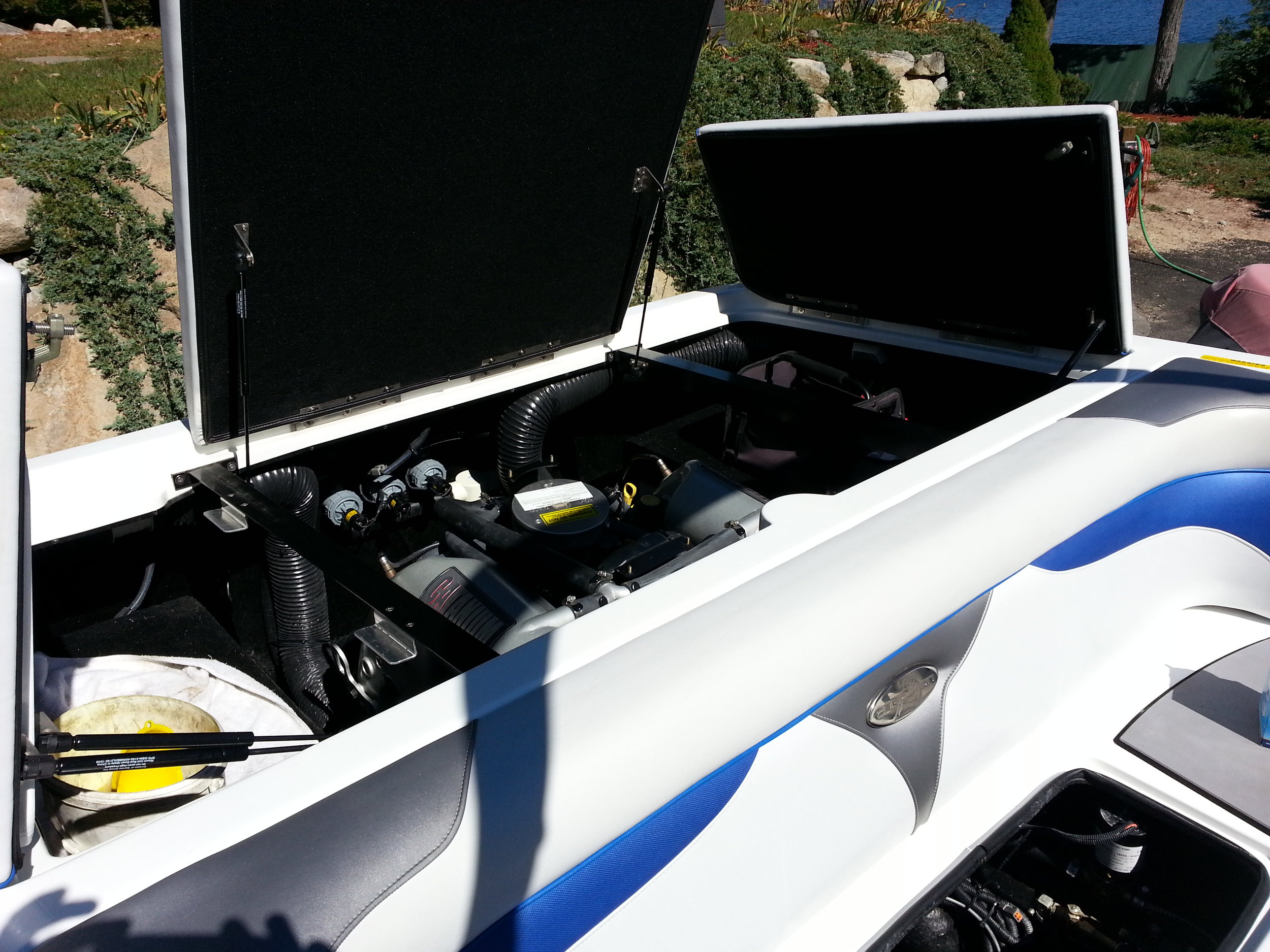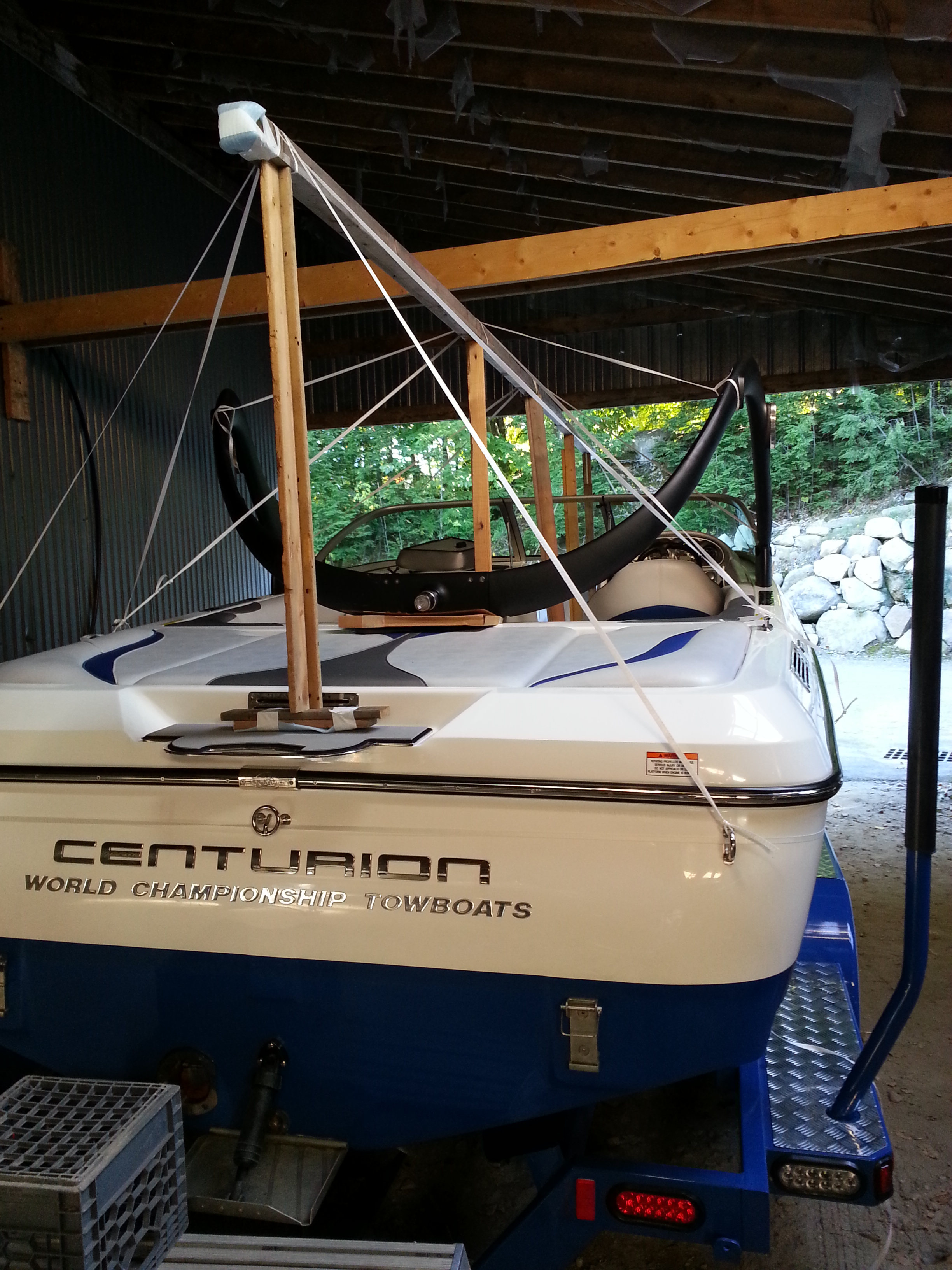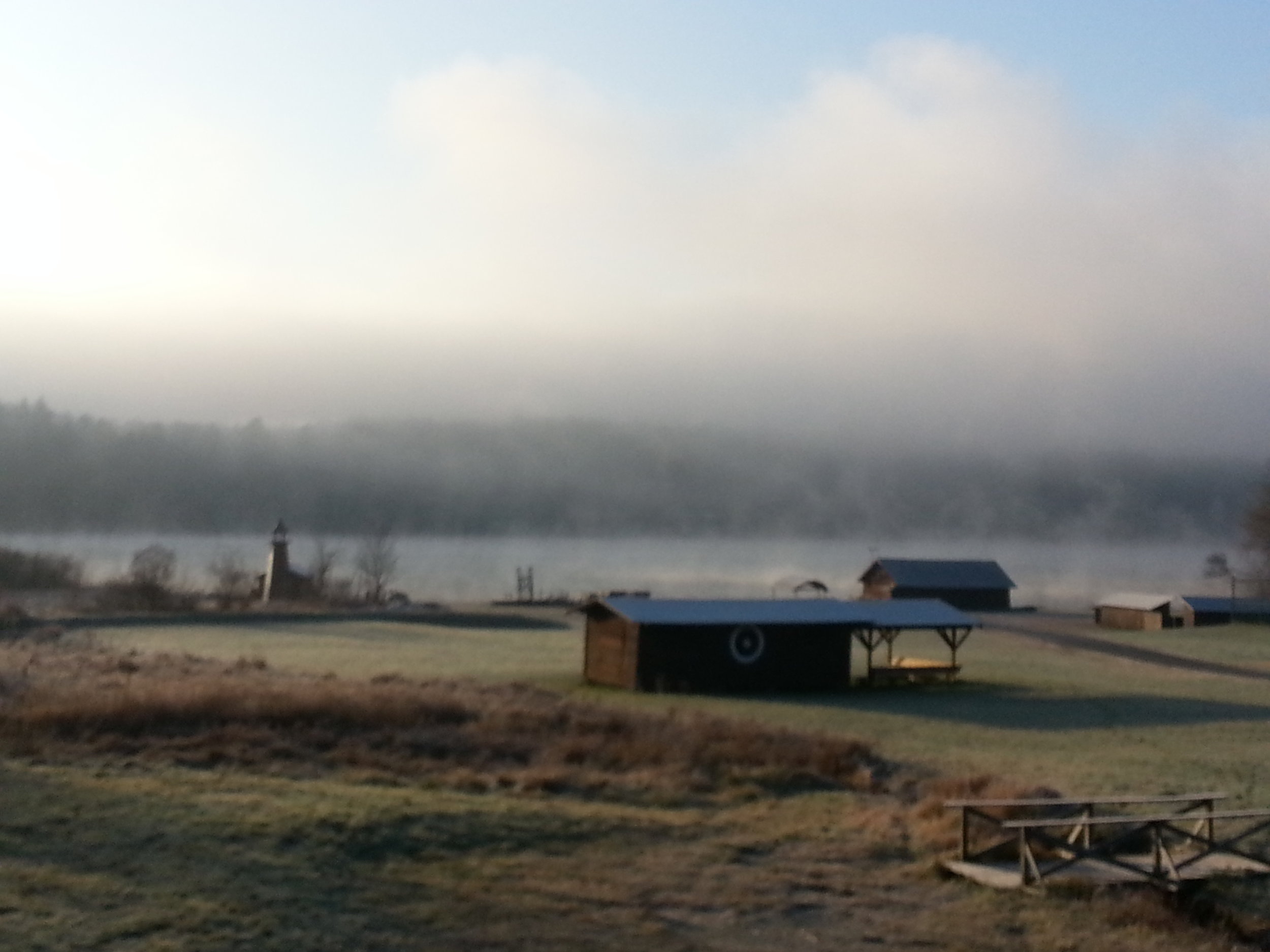In New Hampshire it is inevitable that each year our boating season must come to an end. Along with brilliant foliage comes colder temperatures and last week I finally decided to give in and pull the boat out of the water to avoid the risk of the engine freezing. Technically it could have stayed in the lake through October but surfing and riding just is not as fun with water in the mid 50's. Everyone with a boat knows what it takes to keep it properly maintained and in pristine condition buy many out there - including my campers - get the benefits of the boat but do not share in the work so here are all the details!
The winterization process began on Monday with a thorough cleaning of the inside of the boat. I first removed every life jacket, board, ski, and piece of equipment then got busy with a shop vac. Once all of the loose stuff was out it was time for four or five hours of scrubbing the cushions, deck, glass, and every square inch of the inside. By the time I was done the Centurion looked just as good as the day we bought it back in May.
Having already washed and waxed the outside of the boat earlier in September, all that was left was to get the boat on the trailer and into the hands of the Merrymeeting Marina mechanic, Chuck. Chuck was nice enough to let me watch over his shoulder and help out a bit so that I could learn more of the ins and outs of the Centurion's complicated systems.

The first task was to swap out the old oil for fresh stuff. We change the oil every 40 to 50 hours and it is better to have clean oil in the boat for the long winter in storage. With the oil taken care of, Chuck next forced anti-freeze through the ballast system. We had to make sure there was no water trapped in the pumps or tubes that could potentially freeze during storage. It was pretty cool to see how the system functioned and watch the red anti-freeze make its way through the intake, into the tanks, and finally out the back of the boat.
The next hour was spent draining the engine's water cooling system and again forcing anti-freeze everywhere there was formerly water. That being done, we disconnected the battery and the inside of the boat was ready to go.

We moved the boat to the indoor wrapping station to get it shrink wrapped. The first step of this process is to build a framework for the wrapping.

Framework in place, the plastic wrap was stretched over the boat, secured to the framework, and shrunk into place with a 1,500 degree propane torch.

With the wrapping done, our boat is now prepared for storage in the cold, New Hampshire winter. The engine will not freeze and the interior is safe from snow, rain, and other debris. As sad as it was to say goodbye to the boat for the year, it is the price we pay for having our camp in the northeast.








